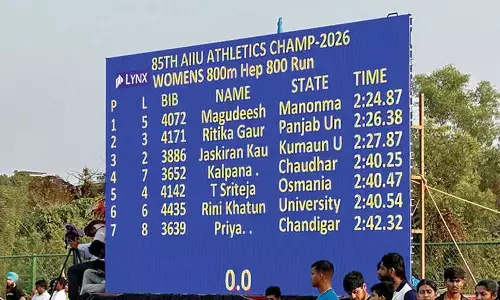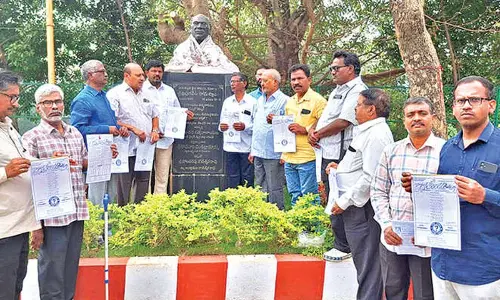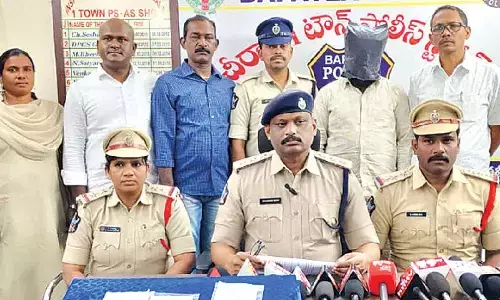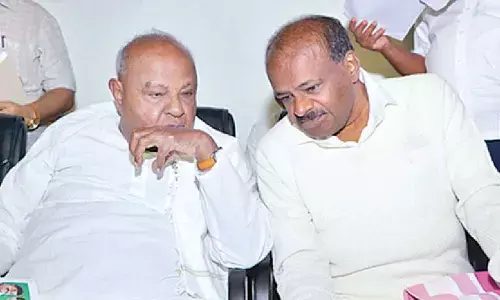Ex-prisoner gets wages thru’ RTI
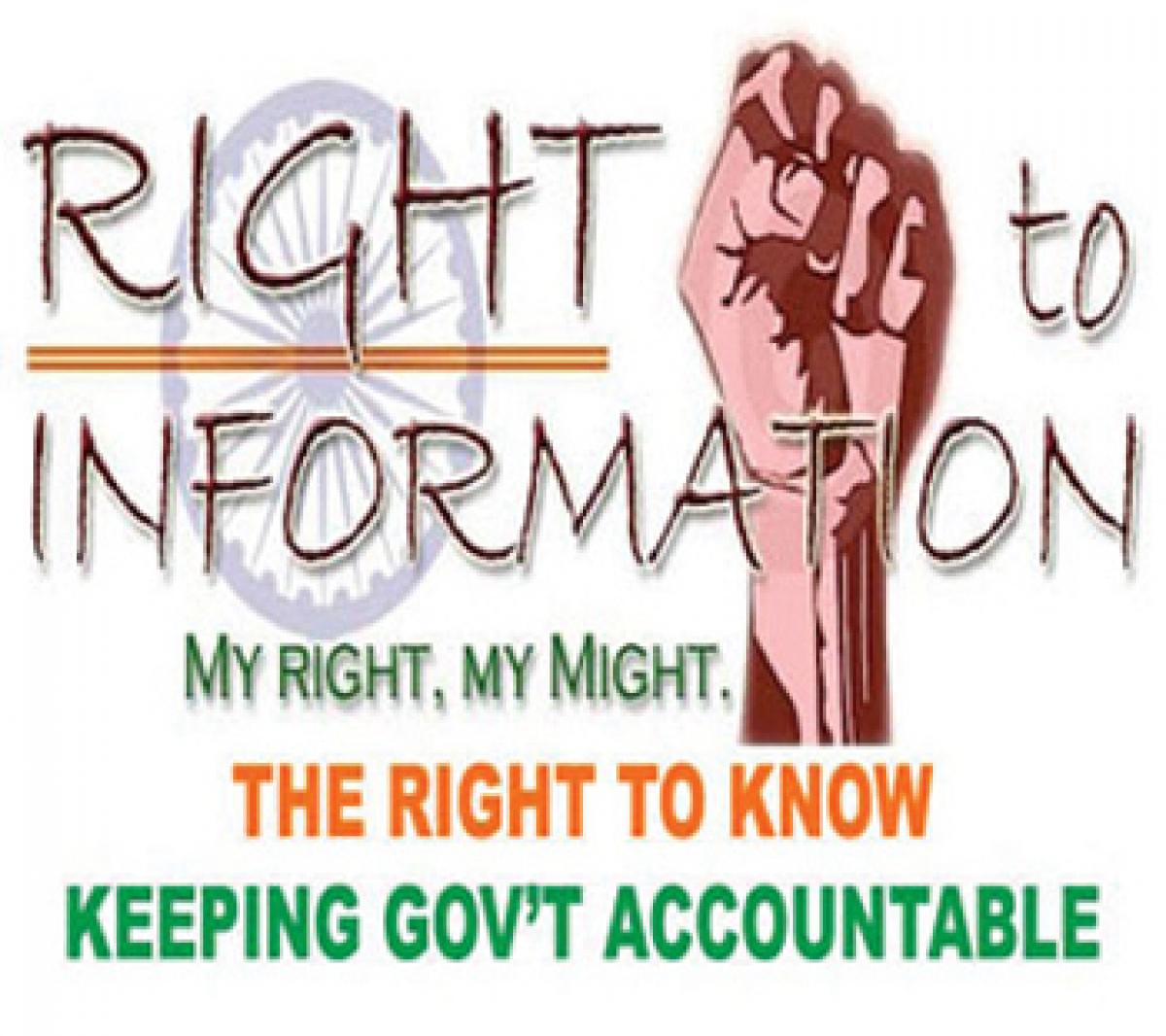
Ex-prisoner gets wages thru’ RTI. Central Information Commission is not the appropriate forum for redressal of grievance. It only deals with access to information, which could form basis for further claim.
.jpg) Central Information Commission is not the appropriate forum for redressal of grievance. It only deals with access to information, which could form basis for further claim. However, in general practice, applicants would seek information through this formal mechanism only when there is some problem or grievance. Interestingly, the moment information is sought, the authorities try to understand the grievance. The very fact that the RTI Act provided for a senior officer to be designated as the First Appellate Authority enabled the aggrieved to get an opportunity to get his problem addressed is significant
Central Information Commission is not the appropriate forum for redressal of grievance. It only deals with access to information, which could form basis for further claim. However, in general practice, applicants would seek information through this formal mechanism only when there is some problem or grievance. Interestingly, the moment information is sought, the authorities try to understand the grievance. The very fact that the RTI Act provided for a senior officer to be designated as the First Appellate Authority enabled the aggrieved to get an opportunity to get his problem addressed is significant
If a prisoner renders work for the jail authorities, he is entitled to wages. The authorities have to explain why wages are not paid or delayed. OP Gandhi was an unfortunate convict in a cheque bounce case, who worked in Tihar Jail but was not paid. After his release, he filed several RTI applications to ascertain reasons for non-payment of wages. First appellate authority directed the PIO/ Central Jail-5 to release the wages.
The PIO stated that his grievance regarding release of wages for the convict was resolved. He also claimed no dues. They have to take compulsory work only from the prisoners sentenced with Rigorous Imprisonment (RI); they are not supposed to take work compulsorily from Simple Imprisonment (SI) convicts. It is optional for the prisoners of SI to work or not. Depending upon the skills and capacity of prisoners of SI, authorities are authorised to take work if they agree.
Appellant has shown attendance sheet marked by Medical Officer In-charge claiming that he worked in OPD and did data entry etc. Superintendent and Deputy Superintendent pointed out that the Medical Officer has no authority to mark attendance hence they would not consider it as the work for which they have to pay remuneration. Senior Medical Officer (SMO), on his own, cannot issue such an attendance sheet unless sought by the authority.
Appellant claimed that he had worked with the SMO in January, February completely and 15 days in March, but he did not get money for these days. He got money for his work in the month of April, May, June and July in 2014. Appellant claimed that he was not paid for some days of work. After examining the documents and contentions from both the parties, the first appellate authority agreed with the claim of the appellant and directed to release his wages.
RTI Act and Central Information Commission is not the appropriate forum for redressal of grievance. It only deals with access to information, which could form basis for further claim. However, in general practice, applicants would seek information through this formal mechanism only when there is some problem or grievance. Interestingly, the moment information is sought, the authorities got to understand the grievance.
The very fact that the RTI Act provided for a senior officer to be designated as the First Appellate Authority enabled the aggrieved to get an opportunity to get his problem addressed at that level is significant. In his capacity as the senior officer, the FAA also will be in a position to resolve both the questions regarding information and grievance. As appellant has right to information, he can seek the information about the grievance – non-payment of wages for some days.
The PIO has not implemented the reasonable order of First Appeal Authority to release the wages. Information sought is related to wages payable to prisoners for their work. In this case denial of information is equal to denial of wages. The Supreme Court on January 17, 2015, issued a notice to the Centre and the State governments on a PIL seeking a direction to fix wage for prison workers on par with minimum wages and to provide eight hours of work to all prisoners and under-trials who volunteer for such work.
Bihar-based NGO Bandi Adhikar Andolan filed a Writ Petition (Criminal) No. 210 of 2014. A bench headed by Chief Justice H L Dattu issued notices seeking response from the governments. The petitioner alleged that denying reasonable wages to a prisoner for his work amounts to violation of their rights. "This (Supreme) Court had directed in 1998 to fix the wages of the prisoners according to the Minimum Wages Act, 1948.
In spite of the directions of this Court, the prisoners' wages continue to be much below the average minimum wage thus violating the constitutional rights of a prisoner," the petition complained. It further said prisoner's rights are further exploited with arbitrary deductions in the prisoners' wages that leaves them with a meagre amount that they receive in hand which is not reasonable enough to support the family of the prisoner.
The NGO referred to the case of Bihar where the prison wage is Rs 87 per day for semi-skilled workers while the minimum wage for semi-skilled workers in the state is at Rs 188 per day. "The prison wage for skilled workers is Rs 121 per day. From this amount Rs 72 is deducted, which amounts to approximately 60%. The prisoner gets in hand only Rs 59 per day. This deduction is not in conformity with the Supreme Court verdict," it said.
This establishes the prisoner’s right to wages for the work rendered, though the rate of wages is to be decided by the Supreme Court. The right of prisoner for wages cannot be disputed. For skilled work rendered by appellant, he is getting only Rs 70 per day, from which 25% will be deducted for the victim welfare fund.
It is surprising to note that while wage fixed for skilled worker in Bihar prison is Rs 121 per day and in Tihar Jail it is only Rs 70. But the deduction in Bihar is 60 per cent, while it is 25% in Tihar jail. The police and medical officers agreed that prisoner has to be paid for some days. Total money to be paid was calculated to be Rs 4,108. The Commission directed the respondent authority to comply with the orders of the First Appellate Authority as to release of the wages Rs 4,108.
Tobacco smuggling
The appellant explained network to smuggle in tobacco and contraband products into the jail, whenever the under-trial prisoners are taken to courts of law for trial on given dates, the prisoners are wrapping up in polythene and swallow, collect same from toilet and sell at high prices, which some officers also knew.
Officers said x-ray would detect swallowed blade or surgical blade, but not tobacco packs. They also detect by urine acid test and other examinations. Cancellation of mulakhat, furlough, parole etc is the punishments they impose. Commission directed an inquiry. (Based on my order in O P Gandhi v. PIO, Tihar Jail, CIC/SA/A/2015/000964 on 13th August 2015)








